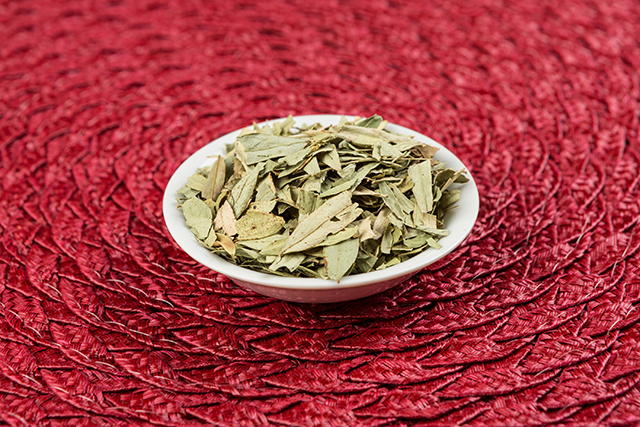Researchers study senna makkai as a potential candidate for cancer treatment
11/28/2018 / By RJ Jhonson

There are very good reasons to be scared of cancer. It can happen to almost anyone and can affect virtually any part of the body. Current treatment methods are also extremely uncertain. A lot of research is focused on finding natural treatments for the disease, ones that are more effective than conventional methods and not as risky. Senna makai, a plant commonly found in the Middle East, is a promising candidate.
Cancer kills 9.6 million people every year, according to the World Health Organization (WHO), making it the second leading cause of death around the world. The use of tobacco is the leading risk factor in cancer, accounting for about 22 percent of deaths from the disease. Other leading risk factors include alcohol use, low vegetable and fruit intake, a lack of exercise, and a high body mass index.
Unfortunately, cancer remains among the hardest health conditions to treat. Not only are conventional treatment methods not a hundred percent effective, they are also rife with side effects. Chemotherapy, for instance, causes severe adverse outcomes that include infertility, an increased tendency for infections and other diseases, and organ damage.
The cost of treatment is also extremely exorbitant – a therapy for childhood leukemia costing a one-time payment of $475,000 per person was launched in 2017 – and remains an insurmountable challenge for low-income patients.
Nature-derived treatments are, therefore, being considered in many cancer-related studies as potentially more effective and less costly alternatives. Most of the plants and natural substances in these studies are used in traditional medical systems in their respective regions, with time-tested applications that may prove beneficial to sufferers of cancer and other health conditions.

One such plant is senna makai (Cassia angustifolia), native to Saudi Arabia, Yemen, and Egypt. Commonly used to address intestinal worms, it is also a traditional medicine for anemia, cholera, and various types of toxicity, including those caused by E. coli. According to a study published in the journal BMC Complementary and Alternative Medicine, senna makai also has potent anti-cancer properties, apart from other health-boosting effects.
The study looked into the plant’s antioxidant, antibacterial, and anti-cancer activity. It was found that besides being a rich source of powerful antioxidants and being able to inhibit the growth of common bacterial pathogens, senna makai also could also suppress breast and cervical cancer cells without causing significant toxicity against corneal epithelial cells. What these mean is that the plant is not just effective against multiple types of cancer, it also causes no significant side effects.
Anti-cancer herbs and spices
Senna makai isn’t the only herb with anti-cancer benefits. The following herbs and spices have been proven by science to be potent in their own right, too:
- Turmeric – Curcumin, a compound found in turmeric, inhibits angiogenesis. This is the process of forming new blood vessels which tumor cells exploit to proliferate and keep themselves nourished. Mixing turmeric with olive oil and black pepper is the best way to activate the power of curcumin and improve its absorption by the body.
- Garlic – The organosulfur compounds that give garlic its pungent smell is also good for the body. These compounds not only kill cancer cells, but they also strengthen the immune system to boost one’s protection from common diseases. The good thing about garlic is that it can easily be added to a lot of dishes to maximize its benefits.
- Ginger – Ginger contains gingerol. Together with zingerone, a compound that forms in dried ginger, gingerol, fights free radicals and inflammation. They may also fight against different types of cancer. Ginger can be added to one’s diet easily, either as an ingredient in dishes or as a calming tea.
- Oregano – This fragrant herb contains the compound carvacrol, which prevents the proliferation of cancer cells. Carvacrol is also found in mint, thyme, marjoram, parsley, and basil. Using oregano to marinate meat also reduces the formation of heterocyclic amines, carcinogenic chemicals that are produced when meat is cooked at high temperatures.
Find more natural, safer treatments for cancer at Cancer.news.
Sources include:
BMCComplementAlternMed.BioMedCentral.com
Submit a correction >>
Tagged Under:
alternative medicine, antibacterial, anticancer, antioxidant, Cassia angustifolia, herbal medicine, natural cures, natural medicine, senna makai
This article may contain statements that reflect the opinion of the author




















